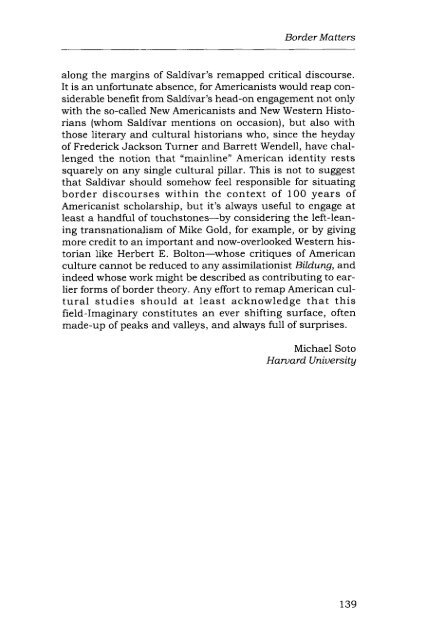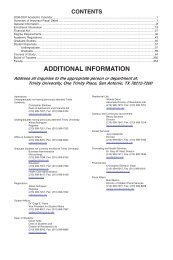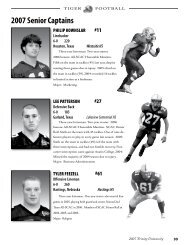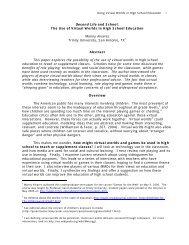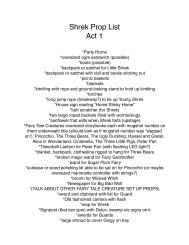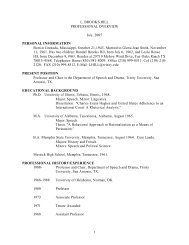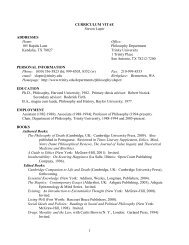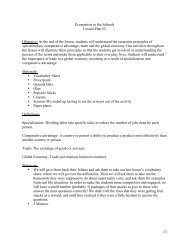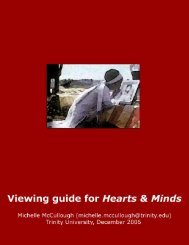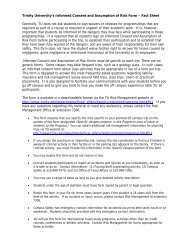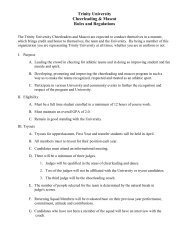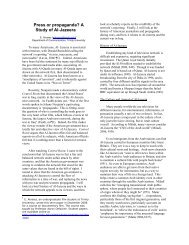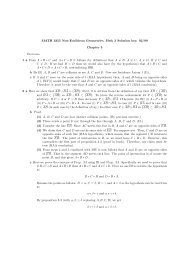Reviews - Trinity University
Reviews - Trinity University
Reviews - Trinity University
You also want an ePaper? Increase the reach of your titles
YUMPU automatically turns print PDFs into web optimized ePapers that Google loves.
Border Matters<br />
along the margins of Saldivar’s remapped critical discourse.<br />
It is an unfortunate absence, for Americanists would reap considerable<br />
benefit from Saldivar’s head-on engagement not only<br />
with the so-called New Americanists and New Western Historians<br />
(whom Saldivar mentions on occasion), but also with<br />
those literary and cultural historians who, since the heyday<br />
of Frederick Jackson Turner and Barrett Wendell, have challenged<br />
the notion that “mainline” American identity rests<br />
squarely on any single cultural pillar. This is not to suggest<br />
that Saldivar should somehow feel responsible for situating<br />
border discourses within the context of 100 years of<br />
Americanist scholarship, but it’s always useful to engage at<br />
least a handful of touchstones-by considering the left-leaning<br />
transnationalism of Mike Gold, for example, or by giving<br />
more credit to an important and now-overlooked Western historian<br />
like Herbert E. Bolton-whose critiques of American<br />
culture cannot be reduced to any assimilationist Bildung, and<br />
indeed whose work might be described as contributing to earlier<br />
forms of border theory. Any effort to remap American cultural<br />
studies should at least acknowledge that this<br />
field-Imaginary constitutes an ever shifting surface, often<br />
made-up of peaks and valleys, and always full of surprises.<br />
Michael Soto<br />
Harvard <strong>University</strong><br />
139


